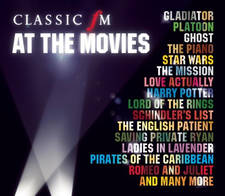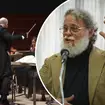Beethoven - Symphony No. 3 in E flat
Composed in 1803, Beethoven's Symphony No. 3 (otherwise known as the 'Eroica') was very much written in the shadow of the two symphonic masters, Mozart and Haydn.
Of all the works in the history of classical music, this is the one that definitively closed the door on the Classical period and ushered in fully the start of the Romantic era. Between them, Mozart and Haydn defined the symphony for their era. Their music certainly contained passion and emotion, but it was always restrained within set structures. These structures were becoming tired, though, and a new music was ready to burst forth.
Step forward Beethoven, prepared once again to break the rules. Here, for the first time, the composer was determined to take his listeners on a sublime musical journey. The degree to which the 'Eroica' was inspired by Napoleon is something that musicologists continue to debate today. But, in essence, it’s not the real question here. Instead, the question is: can we hear what Beethoven is communicating from deep within his soul? Can we hear the themes of struggle and triumph in this victorious music?
Beethoven’s status as the most important composer of his time was pretty much confirmed in an instant with this one mighty work. After hearing it, audiences were gripped. They wanted more. And, as they were about to discover, Beethoven was determined to set about giving them just that.


























